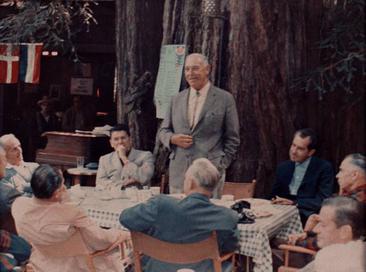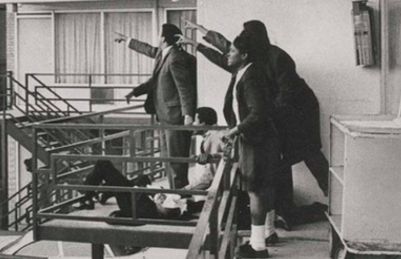
hii! just got back from vacation like, a week ago, and i have a gf now x3!!! um um ok so, history. yep, mhm. so the democrats kind of got trounced in the 1970 midterms and a lot of people had different takeaways from it. the president for his part was despondent. right wing republicans saw it as a victory for firm conservatism, whereas the moderates of the gop saw economic strife as the real culprit. all those different takeaways therefore led these different groups to pursuing different courses of action in 1971. starting with the economy, most people were seeing the bloated budget as the reason for the recession, and so billy dane, now senate majority leader, tried to use this to gut all the johnson welfare programs, but his budget would fail after 1. moderate republicans reallized it included anti-integration parts, and 2. freshman senator cartnell proposed a much better budget that mostly preserved the programs while cutting all the actual waste and inefficiency. the budget also, in accordance with the end of the vietnam war, cut some of the military budget. this was controversial to some, but most folks (especially domestic business interests) just wanted it done, and so the cartnell budget passed with bipartisan support. another major win for big business was the economic freedom formalization act, which was passed via near brute force by the gop and any democrat who could be convinced, whether because they weren't really that liberal to begin with, or because they were worried about the prospect of re-election with the economy in recession. the good news was that the economy would bounce back with the newfound confidence that the capital interests had in the us government. the bad news then, was that the bill utterly destroyed the power of labor in the long term. but that was for future legislators and organizers to worry about.

business is boomin'
the president, for his part, was somewhat absent from these negotiations. both the budget and eff passed with veto-proof margins so it wasn't really like the president could do much, but still. pretty much the only thing the administration really did in regards to the recession was negotiate some new beneficial trade deals for the us. sorensen seemingly felt like he needed to start working with the other side, because his focus found itself on the safe streets act, a widespread tough on crime and anti-drug bill that would have expanded funding to police and increased minimum sentencing for various serious crimes. would have, because when it was proposed pretty much everyone had some problem with it. the left flank of the democrats revolted against the man who'd been their standard-bearer back in 68, conservatives said it didn't go far enough and put too much money into rehabilitation, budget hawks didn't like that we were spending more money in general. more cynically, a lot of the gop just didn't want to give the president anything resembling a win, even if senate maj leader dane gave his tentative support to the bill. it would fail with a measely 40 votes in the senate, nothing of the bipartisan win the president hoped for.
so all this talk of being tough on crime, but a lot of people had a different issue with the department of justice. these folks being the entire south and the issue being "forced busing". you see, early in the year, the supreme court had made a decision on integration that federal courts could use busing, aka transporting students to more faraway schools, to help with school integration. this was the worst thing in the world for mr and mrs white suburban, and same with the governors of several southern states. florida was the most publicized, with governor meridian famously promising to use "every trick in the book" to resist the practice, and largely succeeded. mississippi, alabama, and others would do the same, leading to worries of a backslide of civil rights. the attorney general for his part, despite the claims of folks like meridian, ended up somewhat hesitant to enforce the decision. it mightve just been that he worried the backlash could amount to chaos, but more cynically it was probably an attempt to keep the south competitive for democrats.

a dream forgotten?
there was something liberals had to celebrate. the 26th amendment would be passed and ratified this year after a while in committee, setting the voting age down to 18 years old. in addition, the house would at the end of the year pass the equal rights amendment, which if ratified, would make men and women constitutionally equal under the law. by the end of the year it was looking like it would become the 27th amendment, given the bipartisan support it held, and the fact it looked like it would soon pass the senate, but the hard right of the gop would be appalled, and began organizing against it. for now tho, i'll leave you in suspense (what do u mean u already know how it turns out shhhhh). something else conservatives had to be angry about was, um, vietnam. again. sorry. but like its important ok? while most folks today view it as probably inevitable (except like weird uncles ig), the fall of saigon in december of 1971 was seen as a shock and an unequivocable failure for the administration. a final blow to the president's already unpopular foreign policy. we had lost a war for the first time since either the war of 1812 or never depending on who you ask. it was basically the gop line after that to claim that "hanoi hank" lost a winnable war (or even purposefully sabotaged the south due to communist sympathies). all of this would factor in to the calculus for the start of the 1972 elections, but that's for next time.

plastered on every newspaper in the country